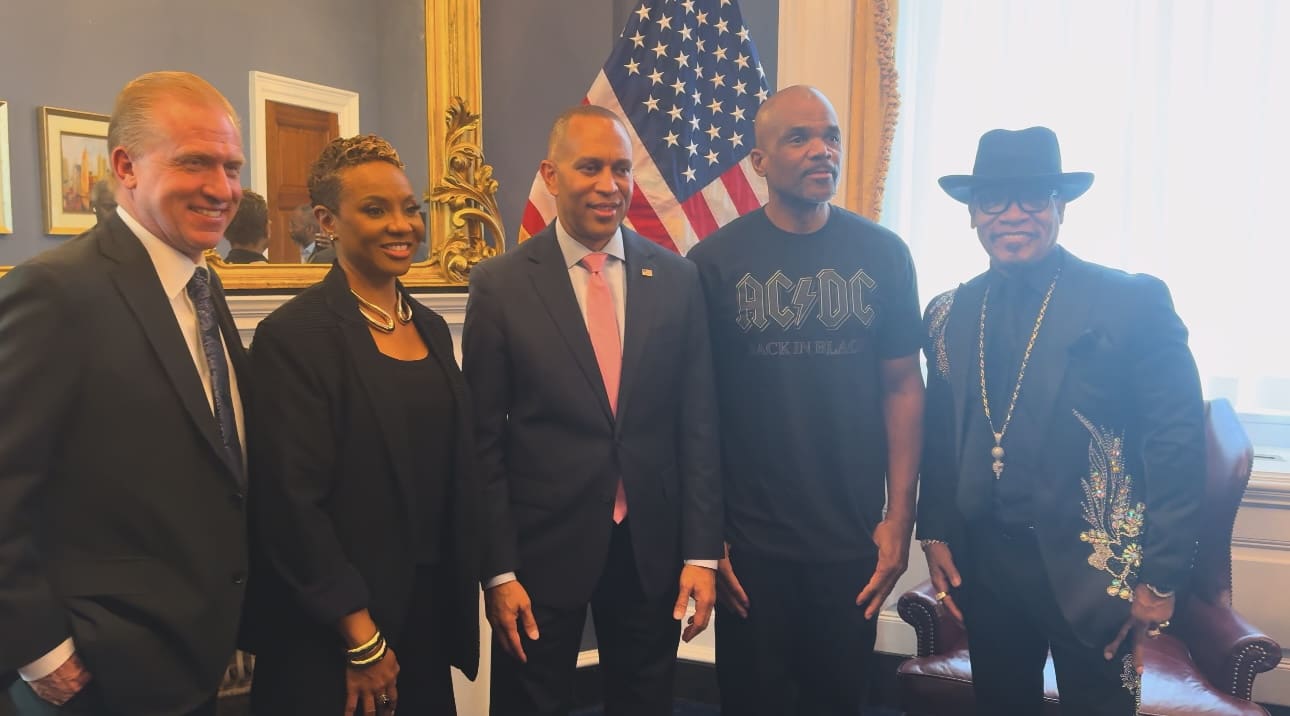Momentum is building on Capitol Hill to address longstanding injustices to music creators. While there are many issues Democrats and Republicans disagree on, the House Judiciary Committee is united on one: bringing copyright laws into the 21st Century by passing comprehensive music licensing reforms.
This unity was on display this week when artists convened on Capitol Hill to advocate for a comprehensive music licensing reform package, which would include a trio of freestanding bills and also establish a market-based royalty standard.
At a Valentine’s Day event in the Rayburn House Office Building, Mary Wilson of legendary group The Supremes and Rock & Roll Hall of Famer Darlene Love joined members of the House Judiciary Committee, including Ranking Member Jerry Nadler (D-NY), Rep. Darrell Issa (R-CA) and Rep. Hank Johnson (D-GA), to celebrate classic love songs and recognize the contributions of legacy artists, songwriters and producers.
Rep. Nadler noted the rarity of bipartisan agreement in the committee. “For those of you who know the Judiciary Committee, you know it’s a very, very ideological partisan committee,” he said. “But when it comes to some of the intellectual property issues, in particular the music issues, that is not true… So we join in supporting the CLASSICS Act and because it’s not a partisan issue, we have a very good chance of enacting it.”

(From left: U.S. Rep. Darrell Issa (R-CA), Mary Wilson, U.S. Rep. Hank Johnson (D-GA), Darlene Love and U.S. Rep. Jerry Nadler (D-NY); Photo Credit: Daniel Swartz /REVAMP.com)
Mary Wilson noted that this fight has been going on for decades. “There are a lot of people I grew up with who are no longer with us and it’s very unfortunate because some of those artists who have already passed on never were paid for the music that they made and it’s played on all radio stations, like SiriusXM,” she said. “We have given the world—not just America—the world, music… But did you know that the people who make that music are not getting paid?”
Following performances of her hits including “(Today I Met) The Boy I’m Gonna Marry,” Darlene Love spoke about the impact this loophole in the law has had on her generation of performers: “The Beatles, the Rolling Stones, Elvis Presley, Frank Sinatra. All of those bodies of work were recorded in the 60s. Unfortunately, a lot of us didn’t know, including me, that they cut [royalties] off in 1972. Excuse me? That’s when we did our greatest music.”
The three bills which would be included in one package are the CLASSICS Act (H.R. 3301/S. 2393), the Music Modernization Act (H.R. 4706/S. 2334) and the AMP Act (H.R. 881). Each address specific inequities in our copyright laws, such as establishing royalty payments for artists who recorded before 1972, creating a single licensing entity to administer the rights for all digital music and ensuring producers and engineers receive royalties for their contributions to music.
On the same day as the event, an ad with more than 210 artists debuted in Politico calling on Congress to pass the CLASSICS Act. “Digital radio makes billions of dollars a year from airplay of music made before Feb. 15, 1972,” the artists stated. “Yet, because of an ambiguity in state and federal copyright laws, artists and copyright owners who created that music receive nothing for the use of their work.”



